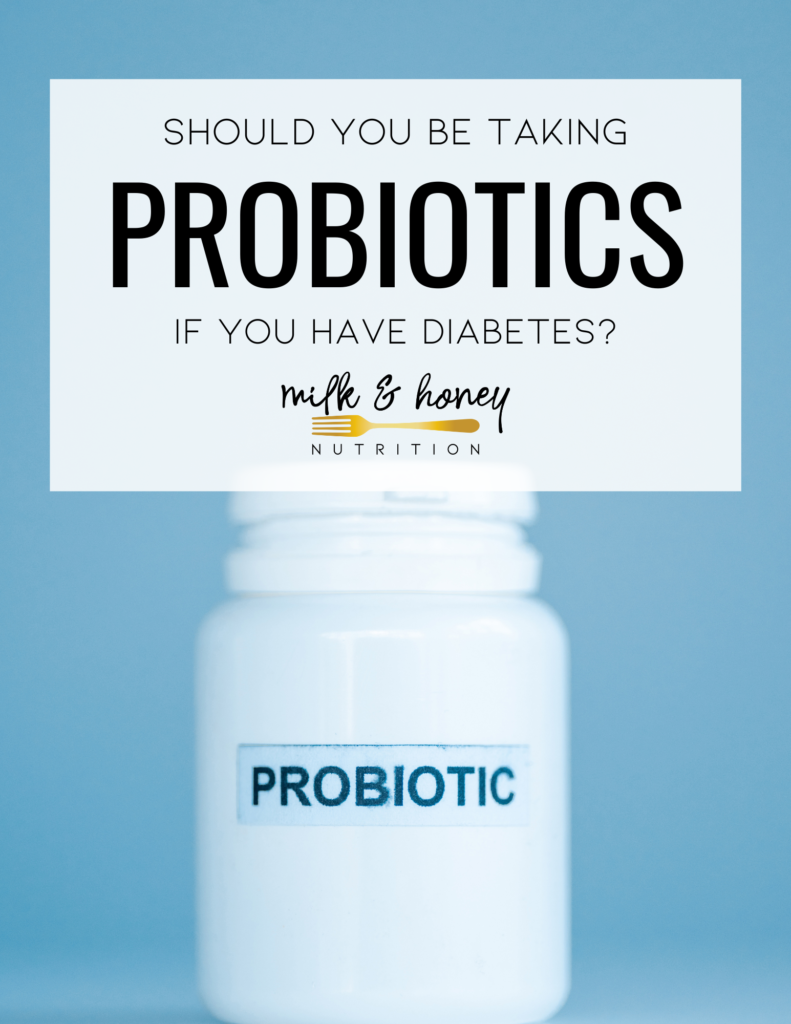
Have you ever wondered if you should be taking probiotics for diabetes?
We learn more and more every day about the links between diabetes, gut health, and blood sugar management. Below we will discuss if you should be taking probiotics for diabetes, and what to look for when selecting a probiotic supplement.
Probiotics and diabetes: should you be taking one?
If you’re reading this article it probably means that at some point you’ve asked the question… Can people with diabetes take probiotics? And most likely whether or not you yourself should be taking one.
More and more research continues to support the role of probiotics for diabetes in blood sugar management, heart health, and GI health. All three of these areas are critical to managing diabetes. Probiotics may help lower insulin and glucose levels in people with type 2 diabetes, and may also support a healthy immune system, a healthy GI tract, and may possibly promote a healthy heart.
Managing your gut health is a key component of managing diabetes. And, many of the same behavioral strategies we use to manage diabetes (nutrition, exercise, stress management, etc.) also impact gut health. We also know that poorly managed blood sugar levels can impact the bacteria in your gut.
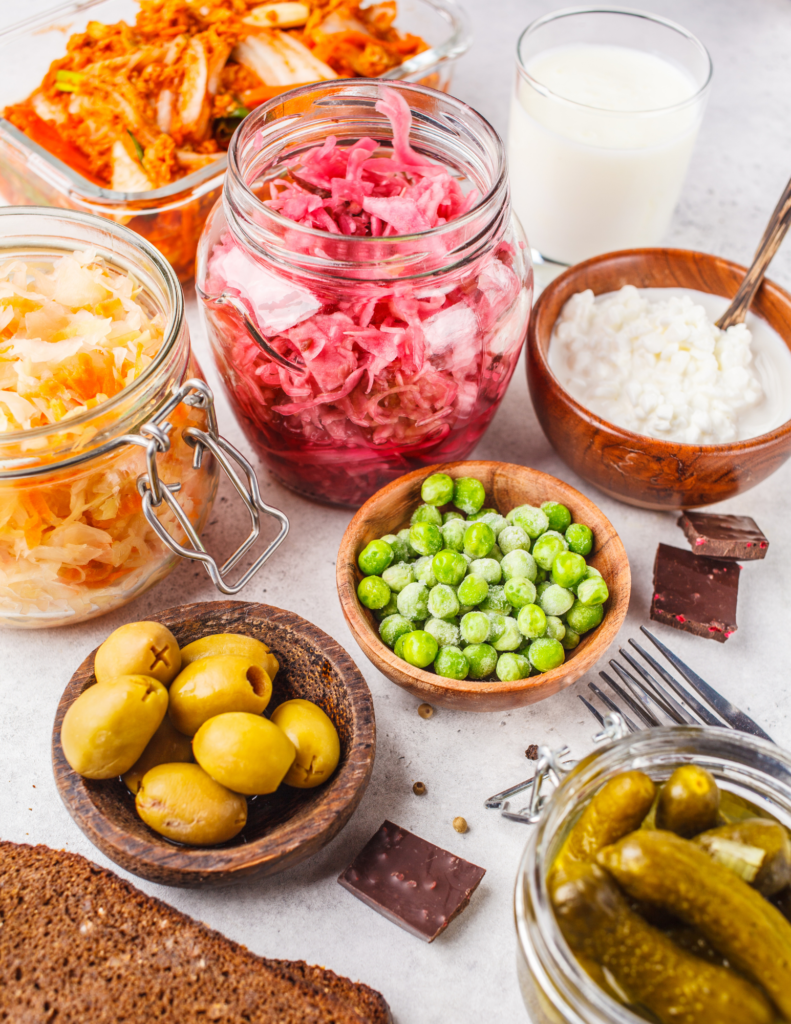
What is the difference between prebiotics and probiotics?
Probiotics are bacteria that live in your digestive tract and help your body digest the food you eat. You’ll often hear these bacteria referred to as the “good bacteria” in your gut. A probiotic supplement contains these same types of bacteria (or very similar types).
Prebiotics are different. They are not bacteria, but rather food for the probiotic bacteria. Prebiotics are found in certain types of fiber found in foods like bananas, asparagus, chicory root, onions, garlic, artichokes, beans, and more.
Ideally, the food we eat should be rich in both probiotic bacteria and prebiotic fiber.
Probiotics and the immune system
We know that a healthy balance and supply of the “good bacteria” in your gut is important for a functioning immune system and for preventing digestive illnesses. Research is mixed though on if supplemental probiotics can help enhance the overall immune system. Definitely an area of research we will see more and more studies on over the next several years!
Foods high in probiotics
Foods that are naturally high in probiotics include:
- Yogurt
- Kefir
- Sauerkraut
- Kombucha
- Kimchi
- Miso
- Fermented vegetables
- … and more
Most people eating a traditional western diet do not consume enough probiotics through food alone and a supplement may be recommended.
TRY THIS RECIPE: Peanut Butter & Banana Protein Overnight Oats with Kefir
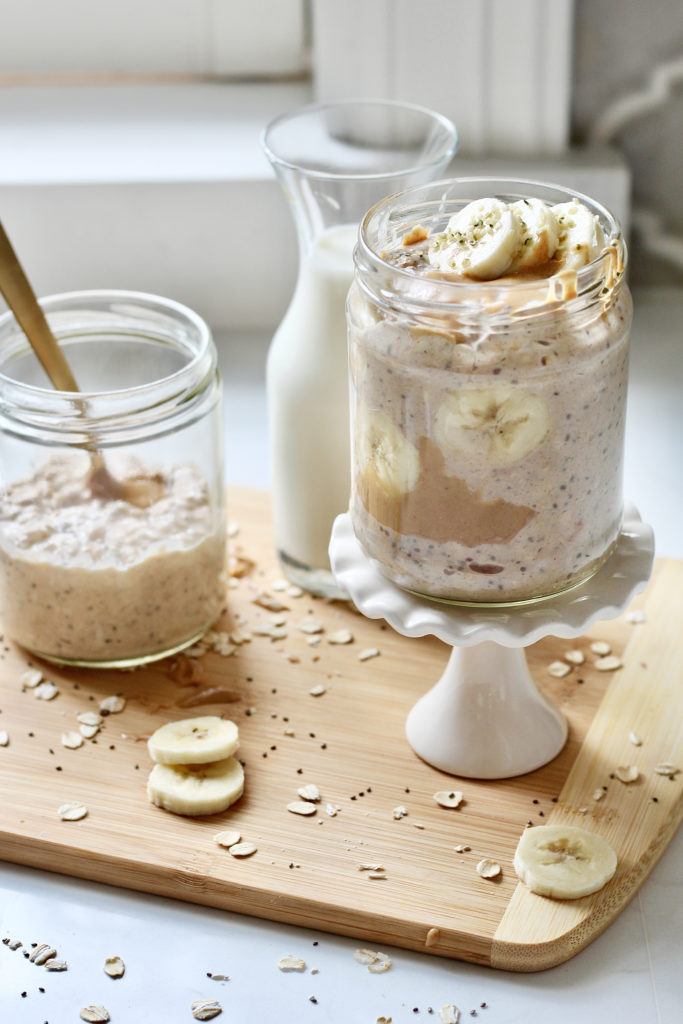
Some common probiotics questions and answers
Before we get to what to look for specifically when choosing a probiotic, let’s answer a few questions about probiotics that I get quite often…
Can I take probiotics with metformin?
Generally speaking, yes. And, some types of probiotics have been reported to help alleviate common negative gastrointestinal side effects (diarrhea, etc.) associated with metformin.
Are probiotics good for high blood sugar?
Probiotics themselves will not lower blood sugars, but some data does suggest that taking a probiotic supplement may help in managing diabetes by lowering insulin and glucose levels in the bloodstream over time.
Do probiotics cause gas?
You may experience some flatulence (gas) upon starting a probiotic, but it should fade over time.
How long does it take for probiotics to work?
For immediate symptom relief of things like diarrhea or constipation, probiotics may start working within a few days. For more chronic conditions and symptoms it will likely take several weeks of supplementation to begin to notice a difference.
What are some signs probiotics are working?
Some common signs your probiotic supplement is doing it’s job and helping to replenish the good bacteria in your gut include:
- Less GI distress
- Regular bowel movements
- Reduced nasal allergy symptoms
- Improved skin (less rashes and itchiness)
- … and more
Probiotics vs antibiotics: are they related?
Antibiotics are an amazing lifesaving tool of modern day medicine. But, they do come with side effects when you have to use them. Antibiotics wipe out bad bacteria in the gut, but they also wipe out good bacteria. So, make sure to talk to your doctor and determine if an antibiotic or other medication is truly needed, and if they think you could benefit from a probiotic supplement to help replenish the good bacteria in your digestive tract after you take antibiotics.
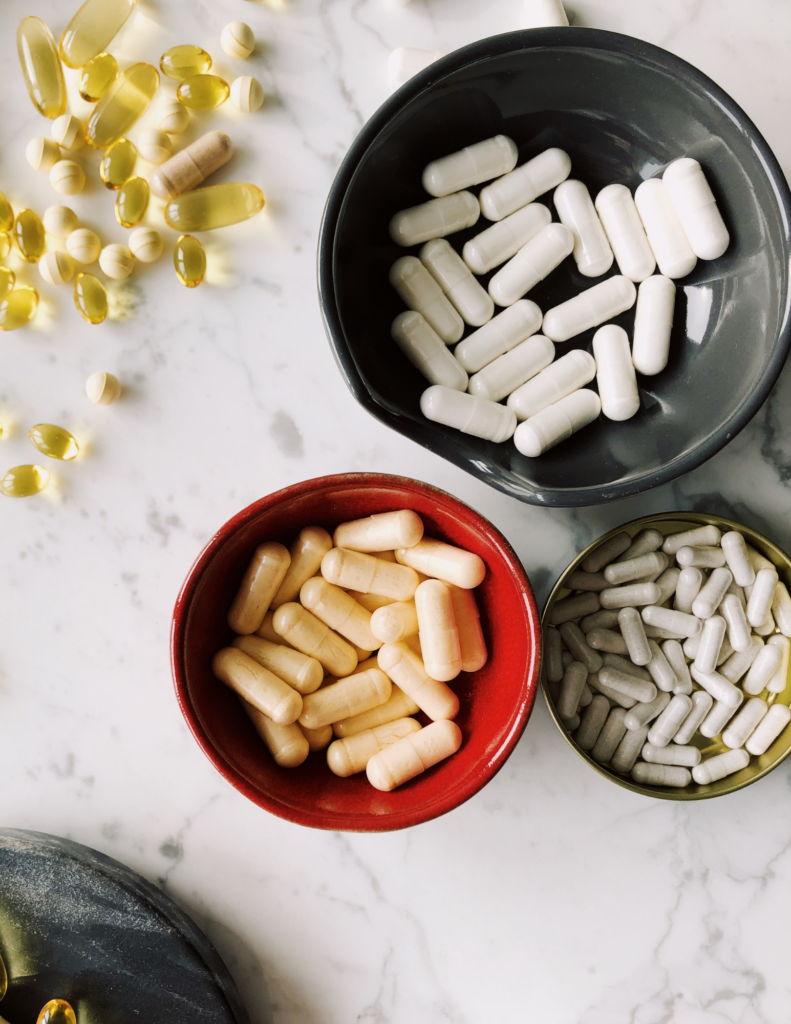
Best probiotic for diabetes
Whether you’re looking for type 1 diabetes probiotic recommendations or probiotics for type 2 diabetes, there’s a few things to always be on the lookout for. Rather than share specific brands, because there are A LOT, I want to give you specific things to look for when you’re choosing probiotics for diabetes. Choose a probiotic with the following information on the label:
- The specific strains of bacteria contained in the supplement
- At least 1 billion colony forming units (this is the number of viable bacteria in one dose)
- Choose a well-established brand with known quality manufacturing processes
- Choose probiotic strains for your specific needs. This article gives a good overview of which probiotic bacteria help certain conditions.
For specific brand recommendations, I really enjoyed this breakdown on healthline.com and encourage you to give it a read if you’re looking for a specific brand of probiotics for diabetes.
Whether you choose get your probiotics from food or from a supplement, including probiotics in your daily routine is an important part of both gut health and diabetes management.
For more information on diabetes supplements, check out the full blog post I wrote on vitamins, minerals, and supplements.






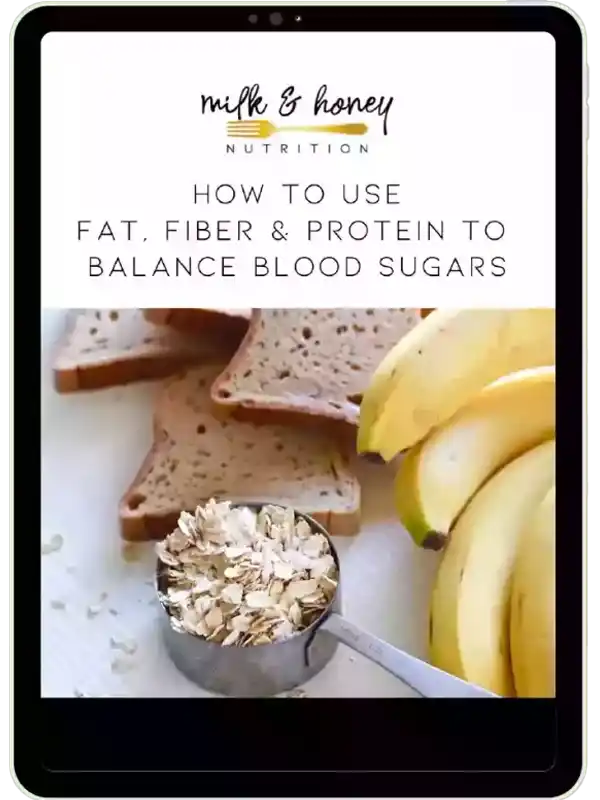
One Response
I am trying Align Probiotic to try and reduce my loose bowel
I have Diabetes and take Metformin to try and keep my glucose level below 7